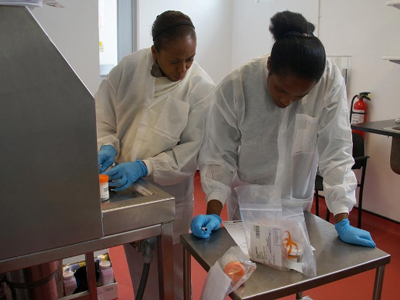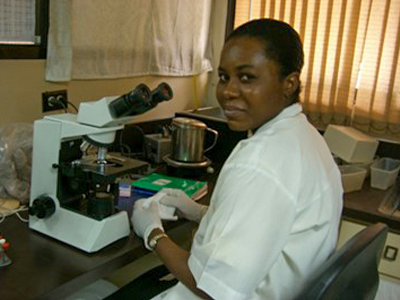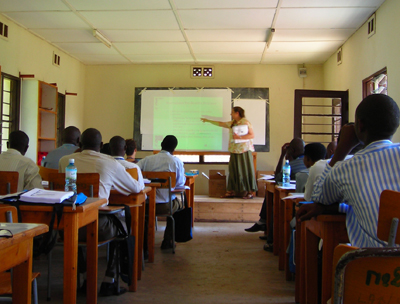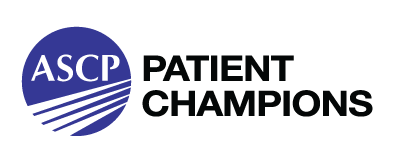
The ASCP Center for Women’s Health Services Research (CWHSR) is dedicated to improving the health of women and girls by addressing critical gaps in access, diagnostics, education, and advocacy.
Evidence-based research drives our efforts to identify and implement effective diagnostic strategies to improve the health of women. By conducting implementation research, we optimize workflows for integrating screening and follow-up care into health systems. Investigational research focuses on developing and applying innovative technologies—such as telepathology, artificial intelligence, and medical imaging—to improve diagnostic accuracy and provide equitable care, even in resource-limited settings.
ASCP is coordinating this multi-institutional project to examine cervical cancer screening and detection rates from a diverse population of women to identify trends that could potentially influence access to care. This project, funded by the Alliance for Women’s Health and Prevention (AWHP) seeks to evaluate these trends in a diverse population of women who are currently underrepresented in data used to generate guidelines for cervical cancer screening in the U.S.
In response to the growing cancer crisis in resource-limited countries, particularly in Africa, ASCP joined forces with a group of global oncology organizations to establish the Coalition for Implementation Research in Global Oncology (CIRGO). CIRGO aims to address the lack of necessary healthcare infrastructure such as screening, data collection, and access to diagnostics and treatment, especially in rural areas, by funding efforts to implement comprehensive cancer care infrastructure and identifying sustainable models that can be replicated in other countries. Through the CIRGO program, ASCP has awarded over $1,000,000 in implementation research grants. Projects funded have included many women’s health initiatives including:
Expanding cervical cancer screening in Mozambique (Dr. Lorenzoni)
Building capacity for breast cancer early diagnosis in Côte d'Ivoire (Dr. Homian)
Establishing a breast cancer early detection program in Rwanda (Dr. Shyirambere) STUDY ONGOING
Evaluating efficacy of HPV self-sampling based Cervical Cancer Control in Mali (Dr. Kamate)
Launching a mobile phone friendship bench intervention for cervical cancer in Malawi (Dr. Mkochi)
Implementing a breast cancer database and patient navigation system in Mozambique (Dr. Neto) STUDY ONGOING
ASCP has supported a CHAI-led study to evaluate the performance and feasibility of Automated Visual Inspection (AVE)–an AI-based tool for detection of pre-cancerous cervical lesions. The study enrolled 25,000 women in Senegal, Zambia, Rwanda, Malawi, Zimbabwe. ASCP provided technical assistance, training, and laboratory reagents so that each participant with a positive screening test received a full histopathologic evaluation including testing by immunohistochemistry Learn More
Through this multisite retrospective paired sample study, ASCP is evaluating the sensitivity and specificityperformance of an artificial intelligence-based the Genius a cervical cancer screeningAI platform compared to traditional screening. The addition of AI and remote digital pathology access to traditional screening algorithms has the potential to improve access to screening, as well as performance.
ASCP is collaborating with Dr. Richard Levenson of UC Davis and Dr. Biatrice Wiafe of Peace and Love Hospital in Ghana to conduct an evaluation of fluorescence imitating brightfield imaging (FIBI), an investigational, inexpensive, slide-free imaging technology, for the diagnosis of breast cancer. Funded by a U01 grant from the NIH, ASCP serves as a co-investigator and will be providing histology expertise and training to project staff on the ground.
ASCP is working with Massachusetts General Hospital, Harvard, and Partners in Health, to develop and evaluate a digital pathology algorithm to diagnose breast cancer and predict biomarker status. Most AI tools in digital pathology are trained using images from predominantly white populations in high-income countries, leading to potential algorithmic bias. Through this collaboration, ASCP is creating a high-quality, racially diverse, dataset of breast cancer whole slide images.
Our goal is for all women to have access to high-quality screening and diagnostics. We work globally to expand screening programs, deliver pathology services, and build sustainable diagnostic infrastructure that ensures women receive the care they need.
Since launch, with support of telepathology and our volunteer pathologists, over 10,000 patients have received a pathology diagnosis. Women represent over 70% of the patients served.
With the help of the latest digital imaging technology and a network of volunteer pathologists, an ASCP-led coalition provides rapid cancer diagnostics to allow care and treatment to underserved communities. Through assessment, partnership-building, collaborative education and training, and implementation of sustainable technologies like automated histology with whole slide imaging and telepathology, ASCP is building durable capacity for cancer diagnosis while also training and supporting a new generation of pathologists and laboratory professionals in LMICs.
"Due to civil unrest, our pathologist is not on site for weeks at a time. We have breast cancer diagnoses within 2 weeks because of the telepathology system. Diagnosis would otherwise take at least 6 months."
Rebecca Henderson, MD, PhD, ASCP volunteer, Hôpital Universitaire de Mirebalais, Haiti


Breast cancer is the most common cancer globally in women with an estimated 2.3M new cases ever year and >70% of the mortality occurring in LMICs.
In 2021, ASCP joined the WHO Global Breast Cancer Initiative (GBCI). Through the GBCI, the WHO, working with other United Nations agencies and partner organizations, provides guidance to governments on how to strengthen systems for diagnosing and treating breast cancer, which in turn is expected to lead to improved capacities to manage other types of cancer.
The Humanitarian Partnership for Access to Critical Treatments (Humanitarian PACT) for Advanced Breast Cancer is a multi-stakeholder collaboration among professional, nonprofit and commercial organizations who share the commitment to accelerate health equity by delivering medication, technology, and supportive services to patients living with cancer. This initiative launched primarily to improve outcomes for women living with HR+/HER2 negative advanced breast cancer in LMICs. As a founding partner of this initiative, ASCP provides technical assistance, education and hands-on training for pathologists and laboratory professionals as the program rolls out in new communities.
In 2022, the Union for International Cancer Control (UICC), along with ASCP and other partners established the Access to Oncology Medicines (ATOM) Coalition, a global partnership to increase access to quality-assured essential cancer medicines in low- and lower middle-income countries (LLMICs) and to help countries develop the capacity for their proper use. Learn More
“ASCP is pleased to cofound [ATOM] with our collaborative cancer partners globally, as we work together to expand access to high-quality cancer treatment to people in low- and lower middle-income countries. The patient is at the center of all that we do as pathologists and medical laboratory professionals. Through this initiative, cancer patients will benefit from access to the best treatments for their specific cancer without fiscal or geographic barriers.”
E. Blair Holladay, PhD, MASCP, SCT(ASCP)CM, ASCP CEO
To support the healthcare workforce, the Center provides targeted education and training for pathologists, laboratory professionals, and other members of multidisciplinary care teams. These programs improve diagnostic skills, promote evidence-based practices, and strengthen local capacity to deliver high-quality care.
ASCP is recognized worldwide as the premier provider of continuing education and resources for pathologists and laboratory professionals. Guided by ASCP’s patient-centered mission, our course catalog includes over 900 educational courses including resources addressing women’s health.
Recent advances in research are leading to new approaches for the diagnosis and clinical management of patients with breast cancer. ASCP is dedicated to providing education on the latest clinical practice recommendations and best practices to ensure optimal diagnosis, testing, and treatment for patients with breast cancer.
With the recent reviews and studies on the prevalence of HPV-negative cervical cancers and precancers, previous assumptions about their rarity are being challenged. These findings suggest that HPV-negative cervical cancers have distinct clinical and pathological characteristics compared to their HPV-positive counterparts, underscoring the importance for pathologists and laboratory professionals to consider HPV-negative cervical cancers and precancers in their diagnostic and management strategies.
This program reviews STIs/STDs that statistically disproportionately affect women. She discusses the various molecular STIs/STDs diagnostic platforms and the role of point-of-care testing in diagnosing STIs/STDs.
Panelists describe some of the myths surrounding women in pathology and laboratory medicine and explain how to improve work conditions for women in the lab. They share what inspired them to enter the field and how the landscape of laboratory medicine has changed for women and other minority groups since they entered the workforce. Listen in for advice for women entering the field today and learn about the role mentorship plays in helping women rise through the ranks in pathology and laboratory medicine.
Drs. Melissa Upton and Kimberly Sanford share a warm conversation in which they reflect on their long and varied careers, describe the unique challenges they faced over their careers, and discuss their accomplishments as trailblazers themselves. The panelists describe the value of finding mentors. They also describe the opportunities for the future of pathology, particularly in the context of working in a multigenerational workforce with evolving expectations of workplace culture.

In partnership with ASCP Center for Global Health, the CWHSR provides education and training to pathologists and laboratory professionals in low- and lower-middle-income countries.
For patients, initiatives like the Patient Champions program provide education and tools to help women make informed health decisions, emphasizing the importance of prevention, screening, and follow-up care.
"Understanding what tests are ordered and what the lab work means is empowering. The knowledge you gain can be transformative. It was for me! Pathology is at the core of every diagnosis. Understanding what tests are ordered and what the lab work means is empowering."
Michele, ASCP Patient Champion

The ASCP Patient Champions program focuses on teaching patients and caregivers about the laboratory so they can better understand their options and choose the treatments that work best for them.
Receiving a serious diagnosis can be life changing. Patients and their caregivers can help take control of their treatment and care options by learning everything they can about a diagnosis, which includes laboratory and pathology results.
ASCP Patient Champions not only advocate for themselves, but they also share what they’ve learned to empower others to do the same. Empowered patients are essential to improving health care worldwide.
By engaging policymakers, healthcare leaders, and community organizations, we advance policies that improve women's access to diagnostics and care while addressing systemic barriers to health equity.